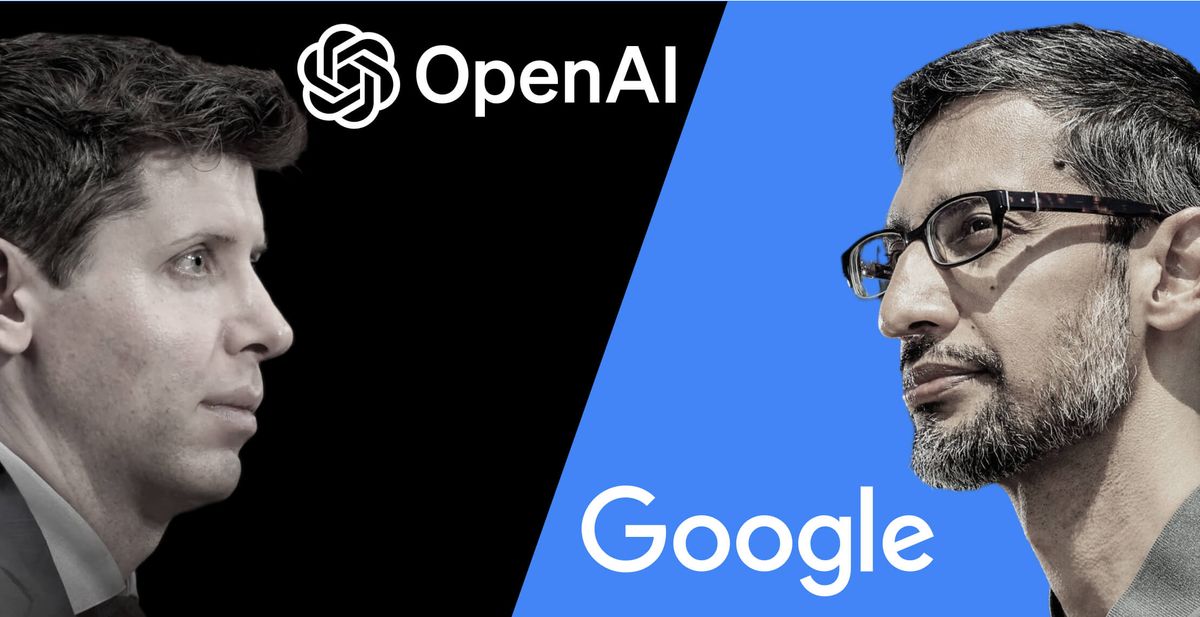OpenAI Challenges Google with a New Browser Initiative: A Bold Step in the Tech Arena
 Ahmed Raza
Ahmed Raza
OpenAI is positioning itself as a formidable competitor to Google, exploring the possibility of launching its own web browser to rival Chrome. Building on its recent entry into the search engine market with ChatGPT Search, the company is reportedly in the early stages of developing a browser codenamed NLWeb (Natural Language Web). This ambitious project aims to integrate advanced AI-powered features directly into the browsing experience, leveraging OpenAI's expertise in natural language processing.
A Strategic Move in a Crowded Market
Although still in its conceptual phase, NLWeb has already sparked interest within the tech community. According to The Information, OpenAI's CEO Sam Altman has engaged in discussions with potential collaborators such as Eventbrite and Priceline. While insiders have noted that the browser is far from market-ready, OpenAI has recruited top talent, including Ben Goodger, a key figure in Chrome's original development team, to spearhead the project.
This initiative underscores OpenAI’s strategy to carve out a niche in an industry dominated by Google. Currently, Google commands an impressive 89.34% share of the search engine market, although this represents a slight decline from 91.56% a year ago. By contrast, Microsoft's Bing, the closest competitor, has only 4.16%, while other players such as Yandex, Yahoo!, and Baidu collectively hold less than 5%.
The browser landscape, while similarly skewed in Google's favor, offers a more dynamic battleground. Chrome leads with a 66.65% market share, followed by Apple’s Safari at 18.09%. Smaller players like Microsoft Edge, Firefox, and Samsung Internet hold single-digit shares, leaving room for disruption. OpenAI’s NLWeb could potentially capitalize on this opportunity, especially if market conditions shift, such as the possible divestment of Chrome from Google, as suggested by recent actions from the U.S. Department of Justice.
Leveraging AI to Redefine Browsing
What sets NLWeb apart is its potential to transform how users interact with the internet. By embedding ChatGPT directly into the browser, OpenAI aims to offer a more intuitive, conversational browsing experience. Users could benefit from advanced capabilities such as real-time query interpretation, context-aware assistance, and seamless integration with other AI tools. If executed successfully, this could redefine browsing, making it more efficient and personalized.
However, significant challenges lie ahead. Competing with Chrome requires not just technological innovation but also substantial user adoption. Given Chrome’s entrenched position and integration with Google’s ecosystem, OpenAI must deliver a compelling alternative that differentiates itself from Chromium-based competitors—a critique frequently leveled at new entrants in the browser market.
Timing and Market Dynamics
The timing of NLWeb’s potential launch could be pivotal. Recent antitrust pressures on Google may lead to a more fragmented market, creating opportunities for new entrants. Additionally, the growing demand for AI-driven tools could give OpenAI a competitive edge, particularly if NLWeb can seamlessly integrate its ChatGPT technology in ways that resonate with users and businesses alike.
In conclusion, OpenAI’s exploration of a proprietary browser underscores its broader ambition to challenge Google’s dominance across multiple fronts. While the journey is fraught with obstacles, NLWeb has the potential to be a game-changer if OpenAI can deliver a browser that not only competes with but surpasses existing offerings in terms of innovation and user experience. As the project evolves, all eyes will be on OpenAI to see whether it can turn this ambitious concept into a market-ready reality.
Subscribe to my newsletter
Read articles from Ahmed Raza directly inside your inbox. Subscribe to the newsletter, and don't miss out.
Written by

Ahmed Raza
Ahmed Raza
Ahmed Raza is a versatile full-stack developer with extensive experience in building APIs through both REST and GraphQL. Skilled in Golang, he uses gqlgen to create optimized GraphQL APIs, alongside Redis for effective caching and data management. Ahmed is proficient in a wide range of technologies, including YAML, SQL, and MongoDB for data handling, as well as JavaScript, HTML, and CSS for front-end development. His technical toolkit also includes Node.js, React, Java, C, and C++, enabling him to develop comprehensive, scalable applications. Ahmed's well-rounded expertise allows him to craft high-performance solutions that address diverse and complex application needs.